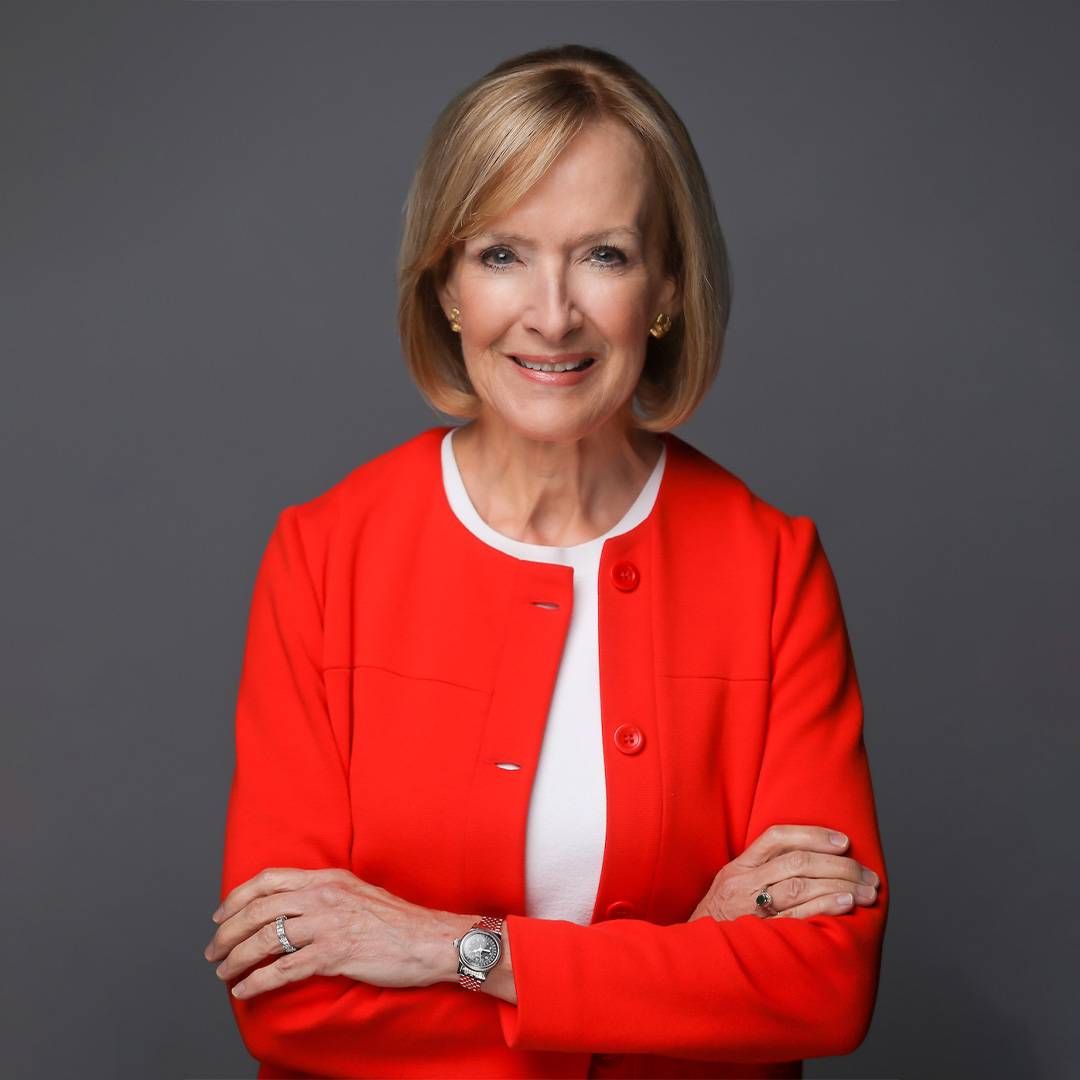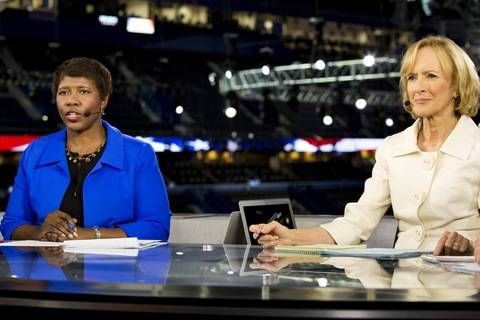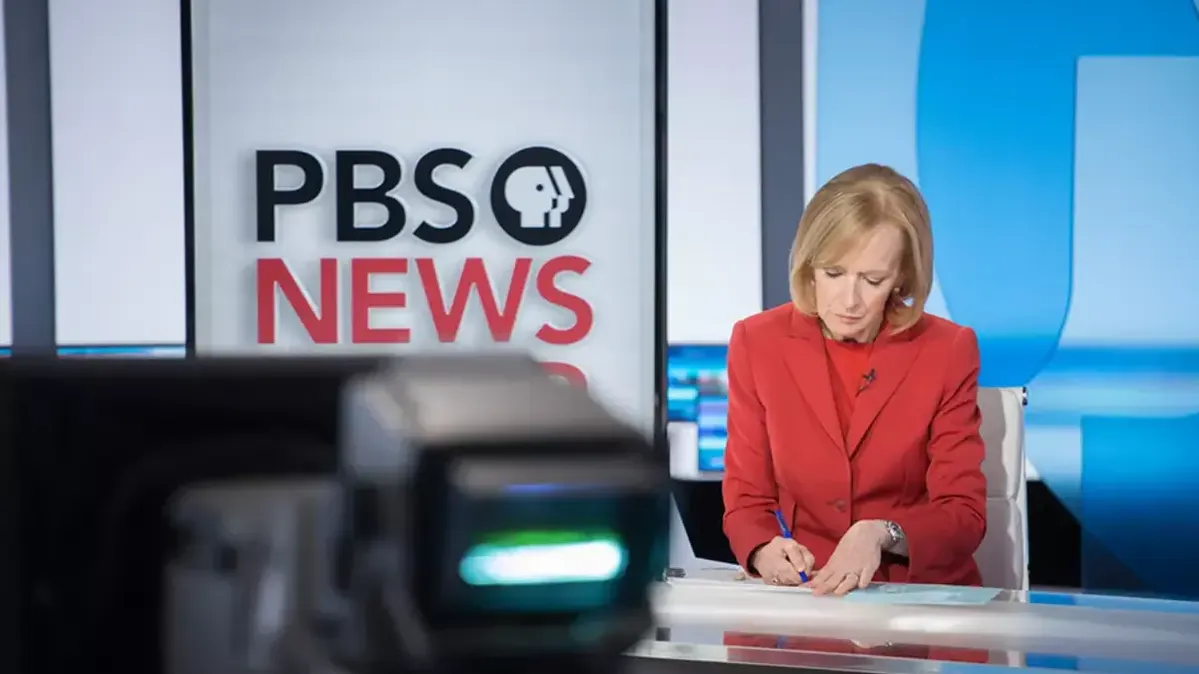Judy Woodruff: Seeking Solutions in a Divided America
In her current reporting role, the longtime NewsHour journalist examines America’s political divisions — as well as challenges facing people with disabilities
When PBS NewsHour's Judy Woodruff announced over a year ago that she planned to pause her anchoring duties to travel the country as a reporter, she knew the move might be misconstrued.

"I wanted to make it clear that I wasn't stepping off the edge of the earth," she laughs. "A lot of people assume when you make a change like that, you're ending your career."
If anything, Woodruff's work has only intensified since. So far, she's visited 16 states and produced 27 stories, including a one-hour primetime special, for her NewsHour series "America at a Crossroads." Convinced that America's fractured political climate is better understood outside of Washington, Woodruff aims to meet with and listen to as many people as possible about the state of our country.
"As a political reporter, I have never seen us this divided," Woodruff, 77, tells Next Avenue. "And the answers are even more complex and multi-layered than we knew."
Woodruff has hit the road again this election year after a slight setback: she injured herself in January following a weeklong ski trip. "The skiing went great," Woodruff explains with a chuckle, "then I got back to my study and slipped on some papers." She's kept up the work, but wasn't actually able to run through an airport again — "which was my M.O. in 2023" — until last month.
Her itinerary includes Alaska, the Pacific Northwest and the South. She'll delve into faith and religion, immigration, gun control, what's on the minds of Republicans and Democrats as they confront their national conventions, and even how politics affects modern dating. Additionally, Woodruff — whose son Jeffrey was born with spina bifida — hopes to spend more time covering disability issues with the NewsHour series "Disability Reframed."
"As a political reporter, I have never seen us this divided."
Though she planned to switch to reporting for "a couple of years, at least," actually doing it, Woodruff says, felt emotional. "When you add it all up, I've been at NewsHour for twenty-seven years," she explains. "In my eleven years of anchoring, there was an essential connection between me, the audience and the program. It was in my DNA." In 2013, two years after NewsHour co-founder and journalism titan Jim Lehrer stepped down, PBS named Woodruff and Gwen Ifill co-anchors and managing editors. They made history as the first women co-hosts of a national evening newscast.
Woodruff became NewsHour's sole anchor after Ifill died in November 2016, just days after Donald J. Trump won the U.S. election. "It was a big loss," Woodruff says of her colleague and dear friend. "Gwen was the ultimate professional and truly an icon. I'm sure she would've brought insight and wisdom to some of these tough questions we've been dealing with as journalists — and fresh thinking."

Woodruff realizes those questions won't be answered with a single "Aha!" moment and are unlikely to go away any time soon. Still, as she states below in her own words — which have been edited for length and clarity — she's committed to exploring solutions, and assures us that she'll continue reporting and contributing to journalism "for as long as I can into the future."
America at a Crossroads
It is a massive undertaking, trying to represent America, 331 million people. So we at NewsHour are trying to be as thoughtful as we can in going to as many different parts of the country as we can, talking to as many different kinds of communities as we can. We've spoken with Democrats. We've spoken with two-time Trump voters. We've been to the panhandle of Texas; the place where I was born, Tulsa, Oklahoma; rural Mississippi.
We've been to Steubenville, Ohio, a small city that was once the bustling center of the steel industry in America, but has since fallen on hard times economically. We talked to people there at, of all things, a food bank. Even though many of the people we spoke with were employed, they still did not have enough money to cover all their expenses. And so we had some candid conversations with them about how they view American politics, how many of them feel forgotten by Washington.
Frankly, there are also voters in America's inner-cities who feel they've been neglected. It's not just rural Americans or small-town Americans in the Midwest, like Steubenville. It's Americans in big cities like Chicago and Los Angeles.
What's Driving Our Political Divisions?
I went into this realizing it was a massive question. In fact, it's a complex, layered phenomenon.
The nature of our division currently goes back a couple of decades, when we started seeing in American politics the personal blame game. One example I cite is when Newt Gingrich was Speaker of the House of Representatives in the early nineties, and Bill Clinton had issued some of his legislative priorities. Gingrich and his team essentially said, 'It's all bad for the country.' And we were off to the races.
"I do know this isn't something that's just going to go away with a wave of a hand — or with one election."
Since then, we've just seen a lot of demonizing of one party against the other, people looking down on those who vote for the other party. There's this animosity, this set of negative feelings we are still struggling to understand.
There are, too, divisions within each of the two parties that reflect just how far apart they have drifted. In particular, the positions championed by former President Trump represent a sea change in the GOP since Ronald Reagan was president. Democrats have their own divisions over issues, from immigration to the Israel-Palestinian conflict.
We take these rifts seriously, but have decided to mainly focus on the even deeper, more widespread divides between the "right" and the "left" in America.
I've also spoken with sociologists who talk about how we have now 'on-boarded' our political identity — it's become a bigger part of Americans' personal identity. People used to get to know each other based on 'Where'd you grow up?' and 'Tell me about your family.' Whereas today, so often it's 'Okay, are you an R or a D?' And if you're one or the other, then 'I really don't want to have anything to do with you.'
"We have now 'on-boarded' our political identity."
I do know this isn't something that's just going to go away with a wave of a hand — or with one election. I think it's very likely to stick around for a while. And I see a lot of efforts around the country to alleviate it, to get people to talk to each other, to sit down over a beer or a cup of coffee with somebody in the other party. They're just not moving the needle at the national level yet.

Disability Reframed
My husband and I have a son who has disabilities. He's now an adult and because of his situation, I've long been interested in the challenges facing people with disabilities. So when the opportunity arose to cover disability issues for NewsHour, even though it was the same time as 'America at a Crossroads,' I said, 'I really would love to do this.'
I'm very, very proud of the work we've done with 'Disability Reframed.' Our coverage includes how climate change risks affect people with disabilities, why the Department of Labor is reviewing a policy that allows workers with disabilities to make less than the federal minimum wage, and what's behind the shortage of workers who support people with disabilities. I hope to continue those stories.
"I'm interested in knowing how people view the United States, its role in the world, their role as citizens."
There is just no end. I must hear every single week — for a while, I heard almost every day — from people who suggest stories to cover in the disability area. And I keep track of all those. I have a file of suggestions that just gets higher and higher. I encourage anybody who has suggestions to please send them to us.
Anchoring vs. Reporting
After I announced that I would be stepping aside from the anchor desk, people would come up to me, or they would email, and say, 'Oh, I see you've retired,' or 'You've slipped into the land of travel and comfort.' So I would very patiently and politely say, 'Thank you, but no, that's not what I'm doing. I'm still working.'
And I've always loved reporting. I loved anchoring because it allowed me to have a role in every story of import and interest and to play that role, have that connection with the audience, every weeknight on the NewsHour.
But what I'm able to do now is just get out there — talk to people, look them in the eye, ask: What are your values? What do you think America stands for right now? What do you think the role of a citizen is?
I'm interested in knowing how people view the United States, its role in the world, their role as citizens. I want to know why they think we're so divided, what they think about people whose political views differ from their own. The things I've wanted to do for a while are the things I'm now able to do. So, while changing roles has been emotional, it's also been very exciting.

Sabrina Crews is a digital editor for Next Avenue and a former reporting fellow with the Robert N. Butler Columbia Aging Center and Columbia Journalism School. Read More

